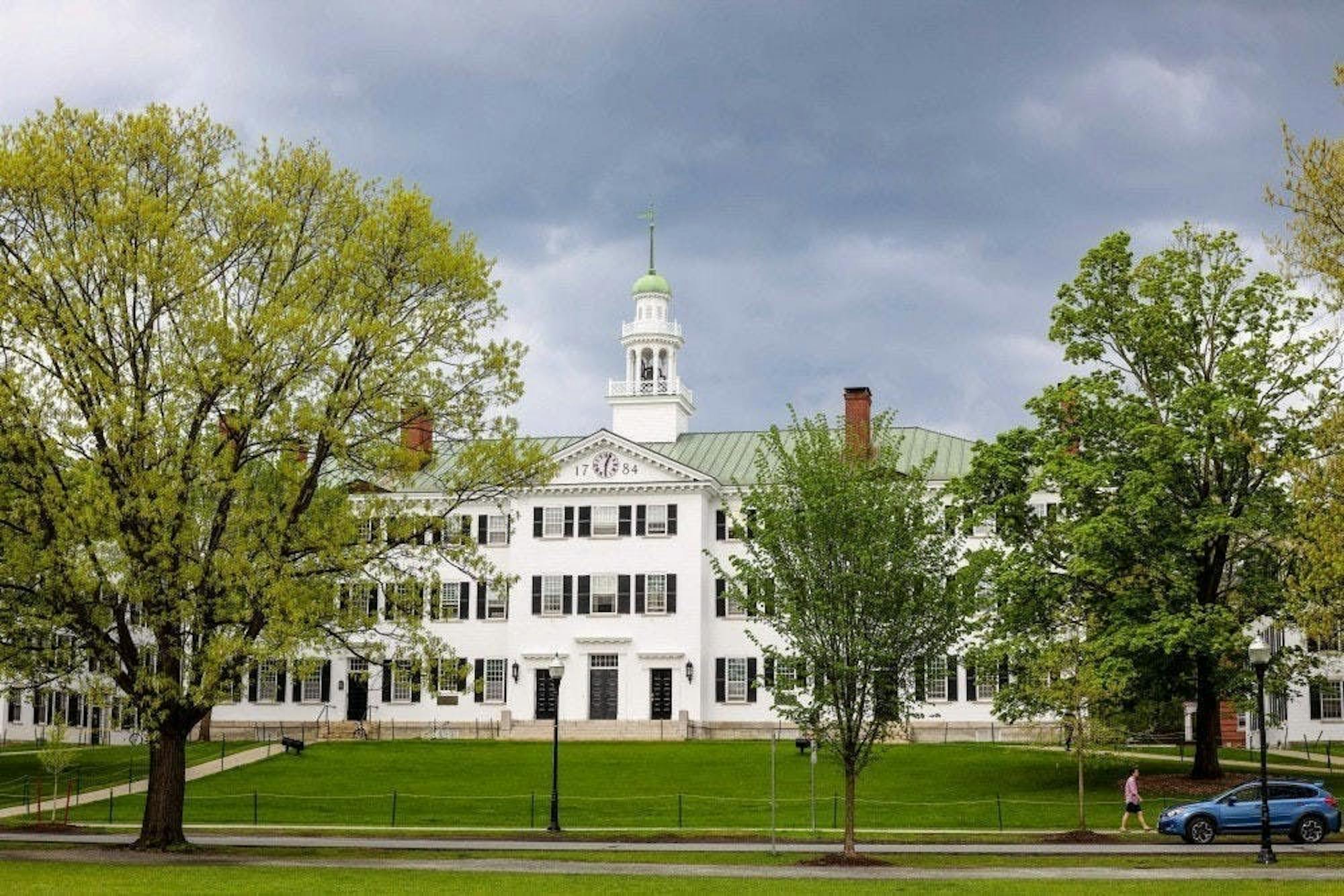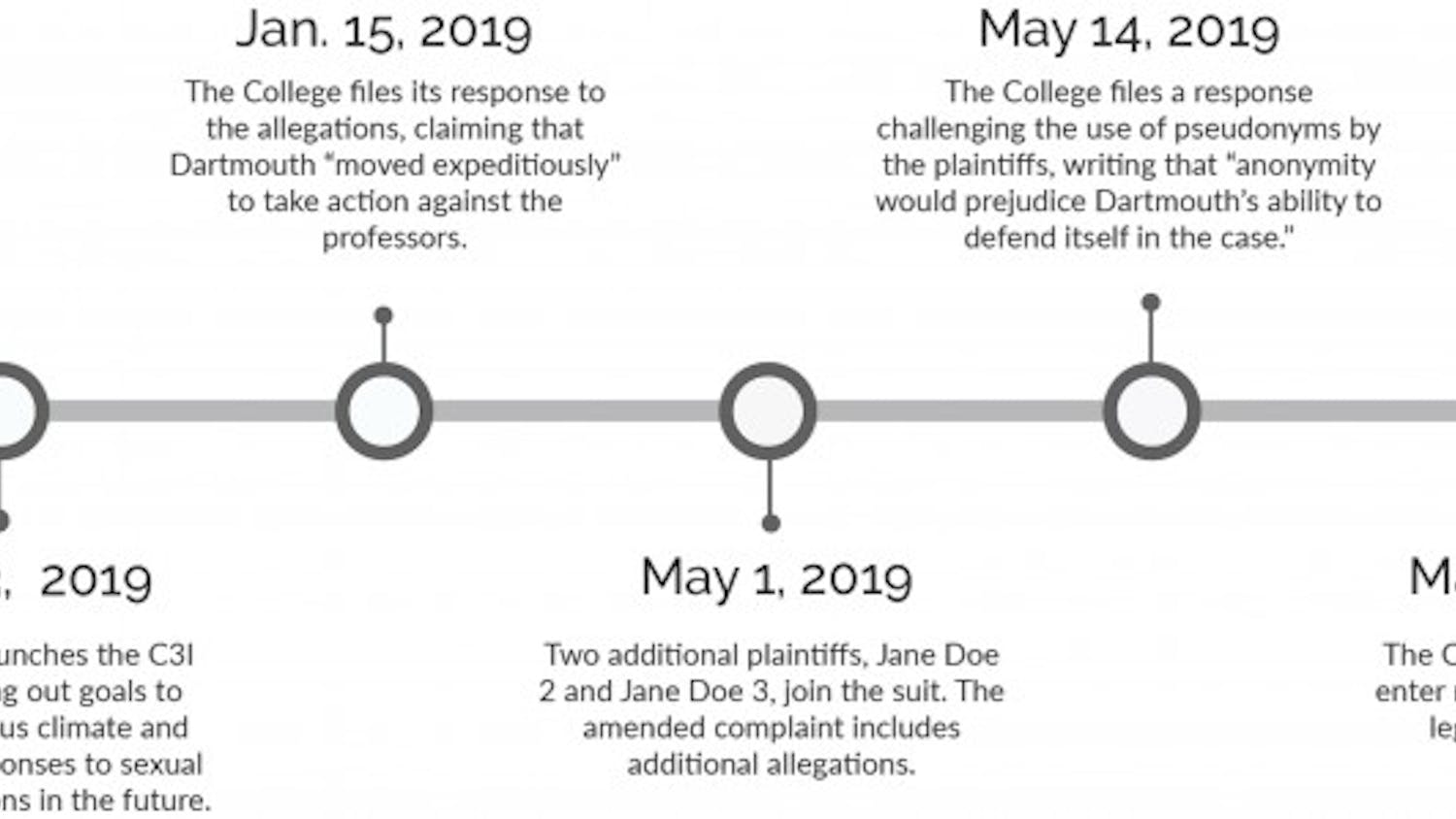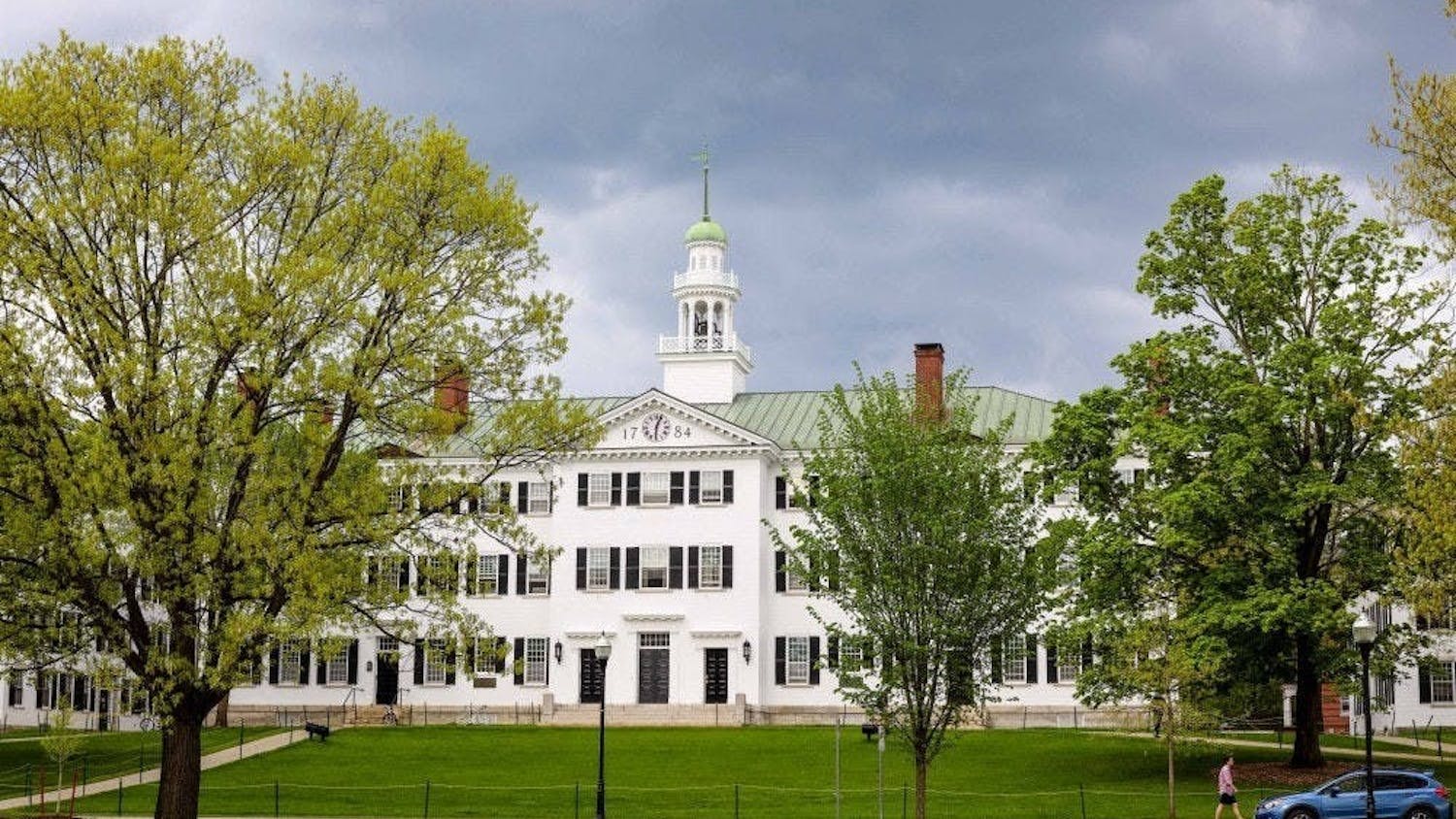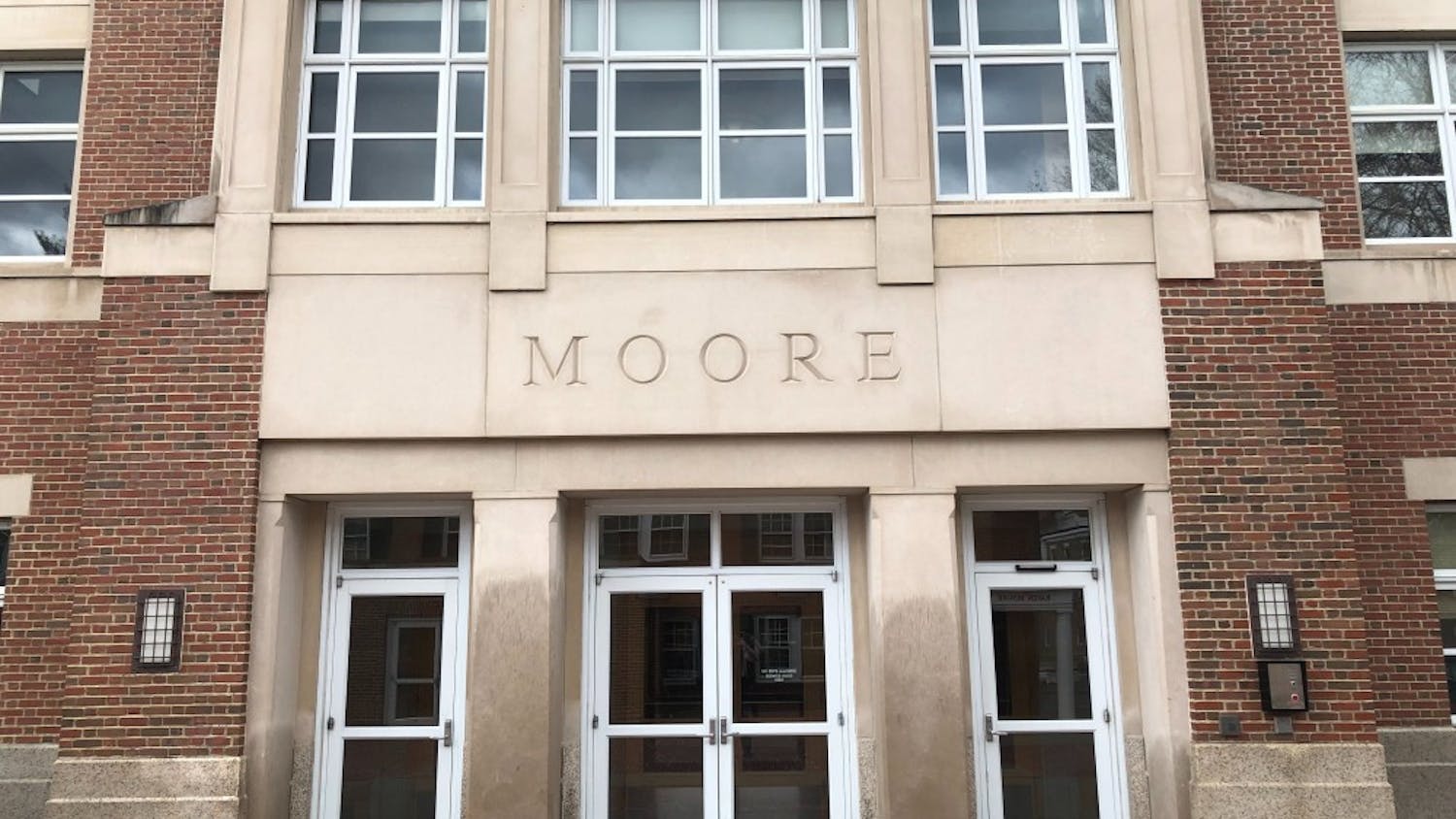The parties in the sexual misconduct class action against Dartmouth made public the terms of their proposed settlement yesterday, with the College maintaining its position that it did not commit wrongdoing and expressly denying that it broke any law or statute.
In a filing yesterday in the U.S. District Court of New Hampshire, the nine representative plaintiffs and the College spelled out the terms of their proposed settlement — first announced last month — which, if approved by the judge, would bring to a conclusion legal proceedings in which the plaintiffs charged that Dartmouth knowingly turned a blind eye to accusations of sexual misconduct by former psychological and brain sciences professors Todd Heatherton, William Kelley and/or Paul Whalen for over 16 years.
While the parties’ settlement agreement states that the behavior of the three professors was “antithetical to the mission of Dartmouth College,” the agreement also provides that the College “has denied and continues to deny liability” for the allegations made in the lawsuit filed in November 2018 — a position matching the College’s initial response to the lawsuit in January.
The agreement states that Dartmouth wishes to settle “to eliminate the burden, expense, inconvenience, uncertainty, distraction, and risk of further litigation,” as well as to compensate those harmed by the conduct of the professors. The agreement provides that the settlement should not be seen as an admission of the merits of any allegations of either party.
“The Court nor any other court has made any findings or expressed any opinion concerning the merits, validity, or accuracy of any of the allegations, claims, or defenses in this case,” the agreement states.
College spokesperson Diana Lawrence wrote in an email to The Dartmouth that the College recognizes the actions of the three former professors “flies in the face of Dartmouth’s mission and core values.”
“This mutually agreed upon settlement resolves the matter without having to go through a courtroom trial,” Lawrence wrote. “The settlement allows the parties to move forward and work together to improve the inclusivity of the research and teaching environment on campus and eliminate power imbalances wherever they exist.”
The filing reveals other terms agreed on by the parties, notably defining the class of women who, if the Court approves the settlement, will be entitled to shares of the $14 million settlement fund being established by the College.
An automatic $1,000 will be paid to every current or former female undergraduate who, between April 1, 2012 and Aug. 31, 2017, worked as a research assistant for one or more of the three professors, or who worked on an honors thesis or independent research study in one of the three professors’ labs.
An automatic $1,000 will be paid to every female graduate student who, between April 1, 2012 and Aug. 31, 2017, were graduate advisees of any of the three professors; were teaching or research assistants for any of the three professors; or, as graduate students in the PBS department, co-authored a paper with any of the three professors based on research conducted in the lab during the relevant time period, or co-authored at least three papers with any of the three professors.
An automatic $1,000 also will be paid to any current or former female graduate student in the department who “will attest that they experienced dignitary, emotional, educational and/or professional harm during this period as a result of the misconduct of one or more of the” three professors.
After the automatic $1,000 payments are distributed to class members, any remaining balance of the $14 million settlement fund will be divided among the class members in unequal sums to be determined by an “independent claims expert” to be selected by class counsel and approved by the Court.
The independent claims expert will evaluate all of the claims to determine each class member’s share of the settlement funds, considering such factors as: the severity and duration of the alleged hostile environment, emotional distress, physical illness, functional impairment to studies and personal life, economic losses, degree of future treatment needed due to the hostile environment and the overall likelihood of success of each of the claims under Title IX. To be eligible for compensation, women will be required to submit a claims form.
When the independent claims expert completes his or her allocation within 100 days after the submission deadline, the decision will be binding and not subject to review.
Women will have the right to “opt out” of the settlement class and, if they choose, pursue their own individual claims rather than accept payment from the $14 million settlement fund.
Regarding the use of pseudonyms by three of the representative plaintiffs, both sides agreed that Jane Doe and Jane Doe 2 will be permitted to remain anonymous, though their real names will be filed under seal with the court. Any approved settlement class members will be able to seek confidential access to the names of the representative plaintiffs using pseudonyms if they show good cause. Jane Doe 3 will proceed with her existing pseudonym.
The use of pseudonyms garnered national attention in May when three additional women signed on to the lawsuit as anonymous plaintiffs, a move to which the College objected. Dartmouth’s challenge to the plaintiffs’ anonymity led to a petition criticizing the College’s tactic. More than 600 people, including presidential candidates Sen. Kirsten Gillibrand ’88 (D-NY), Sen. Bernie Sanders (I-VT) and Sen. Elizabeth Warren (D-MA), signed the petition.
The plaintiffs will file a motion for preliminary approval of the settlement on Sept. 25, and the parties requested that a preliminary hearing be held in mid-October, if the Court deems it necessary.




